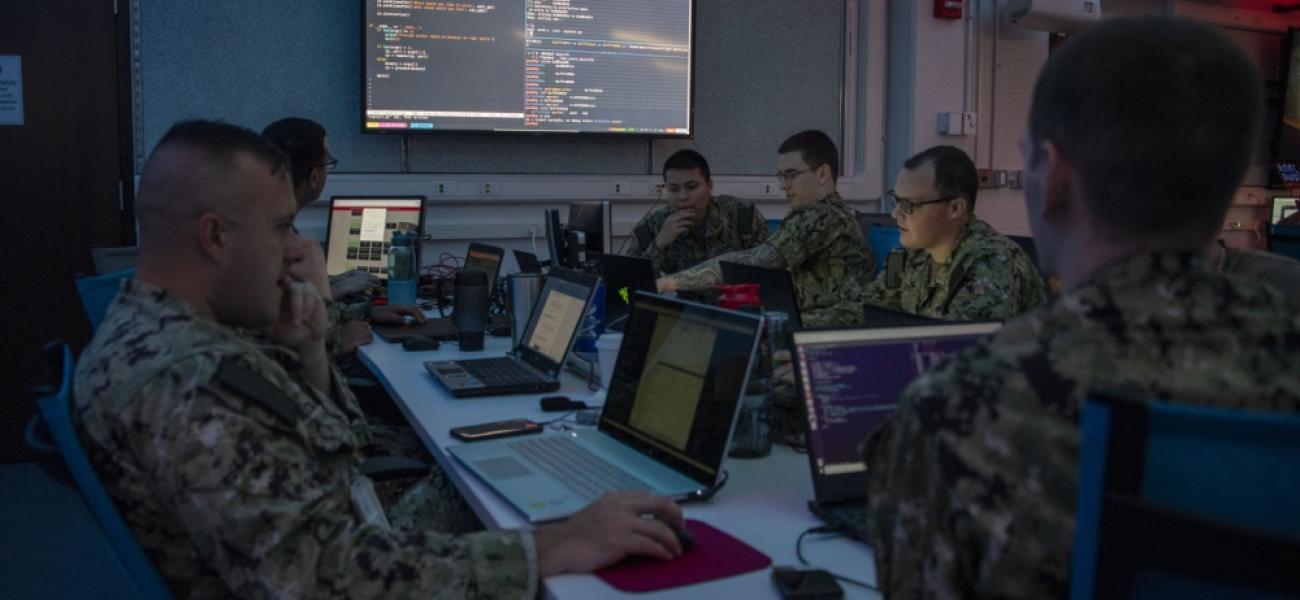
The Cyber-Escalation Fallacy
April 15, 2022
Erica D. Lonergan
This is a summary of an article originally published by Foreign Affairs, with the subheading: "What the War in Ukraine Reveals About State-Backed Hacking."
The author, assistant professor in the Army Cyber Institute at West Point and a research scholar at the Saltzman Institute of War and Peace Studies at Columbia University, writes:
- "During a Senate Intelligence Committee hearing in March, Senator Angus King, an independent from Maine, pressed Gen. Paul Nakasone, the head of U.S. Cyber Command and director of the National Security Agency, about the lack of significant cyber-operations in Russia’s war in Ukraine."
- "In fact, the negligible role of cyberattacks in the Ukraine conflict should come as no surprise. Through war simulations, statistical analyses, and other kinds of studies, scholars have found little evidence that cyber-operations provide effective forms of coercion or that they cause escalation to actual military conflict. That is because for all its potential to disrupt companies, hospitals, and utility grids during peacetime, cyberpower is much harder to use against targets of strategic significance or to achieve outcomes with decisive impacts, either on the battlefield or during crises short of war. In failing to recognize this, U.S. officials and policymakers are approaching the use of cyberpower in a way that may be doing more harm than good—treating cyber-operations like any other weapon of war rather than as a nonlethal instrument of statecraft and, in the process, overlooking the considerable opportunities as well as risks they present."
- "The absence of escalation across decades of strategic interaction in cyberspace—a record that has only been reinforced in the conflict in Ukraine—should cause policymakers to reevaluate long-standing assumptions about the cyber-domain. In doing so, they may be able to see how cyber-actions are but one of a number of strategic tools that, properly understood, can limit the risk of conflict as much as increase it. Of course, the potential for cyberattacks to temporarily paralyze large information networks or even whole sectors of an economy should not be discounted. But in a world in which armed conflict continues to destroy entire cities and wreak terrible human costs, both civilian and military, cyber-operations should be regarded less as another form of hard power than as a way for states to pursue strategic goals by other means."
Read the full article at Foreign Affairs.
Author
Erica D. Lonergan
Erica D. Lonergan is assistant professor in the Army Cyber Institute at West Point and a research scholar at the Saltzman Institute of War and Peace Studies at Columbia University.
The opinions expressed herein are solely those of the author. Photo by Petty Officer 2nd Class William Sykes shared in the public domain.
Click to Subscribe
Russia Matters offers weekly news and analysis digests, event announcements and media advisories.
Choose and sign up here!
Recent Analysis
Crocus Attack Ends Lull of Six Years, Raises Question About Law-Enforcers’ Focus
March 28, 2024
Simon Saradzhyan
Recent Posts
Mitter, Wishnick: Alignment, Not Alliance for Russia-China Relationship
April 18, 2024
Conor Cunningham
Polls Show Record Low Number of Russians Willing to Permanently Move Abroad
April 12, 2024
Simon Saradzhyan
Fiona Hill Delivers Insights on Russia's Perennial Role in Global Geopolitics
March 21, 2024
Conor Cunningham
How Much Would 0.25% of Ramstein Group Members’ GDP Really Raise for Ukraine?
March 07, 2024
Conor Cunningham and RM Staff

